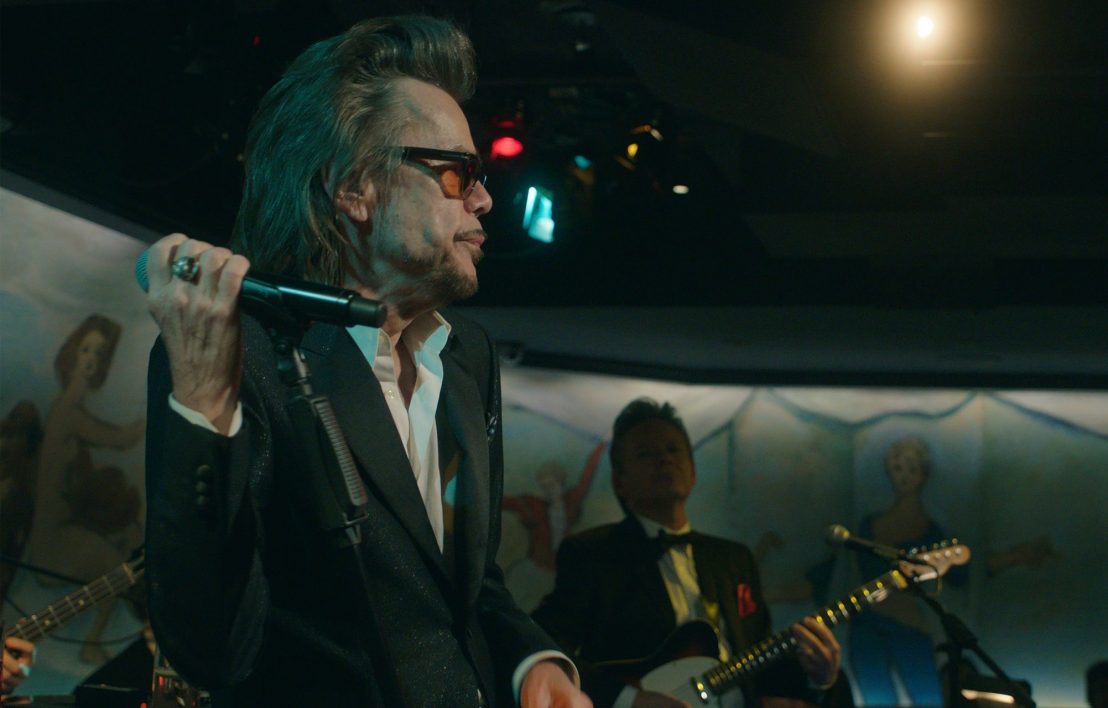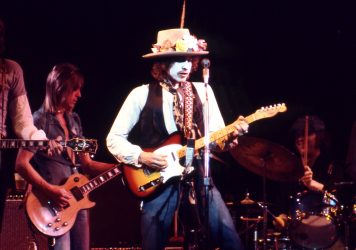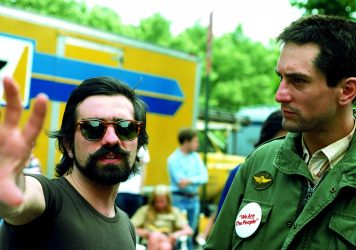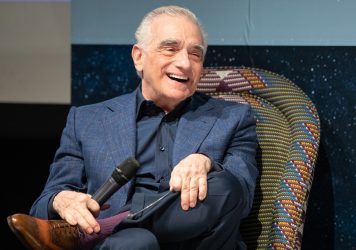
New York Dolls frontman David Johansen takes the stage in Martin Scorsese's latest music doc.
The first New York Dolls gig was at the Endicott Hotel, a homeless shelter. In the concert documentary Personality Crisis, the band’s last man standing David Johansen takes the stage at the Cafe Carlyle, an august temple to jazz with a dress code, wall art that can be taught like a history lesson, and a celebrity clientele that included Debbie Harry and Ari Aster on the night recorded for posterity by codirectors Martin Scorsese and David Tedeschi.
The room known for hosting Woody Allen’s clarinet recitals is a far cry from Johansen’s memory of a German beer hall show ending in a chain reaction of vomit geysers, fondly recounted as the big bang of punk in an inserted interview with Conan O’Brien. Aging has an unkind way of dulling the edges on hellraising types like this. But with lines etched on his rounded muzzle and a tall orange cocktail in hand, Johansen makes for a fine lounge lizard on his seventieth birthday, presiding as a wisecracking elder statesman and troubadour for a crowd — on site, and now in theaters or the comfort of their own homes — keen on a secondhand bite of the bygone Big Apple whose legacy he keeps.
Johansen can banter with the best of them, armed with hours of delightfully scuzzy anecdotes from his years in and out of the downtown art-freak scene, where the Dolls were hailed as proto-glam heroes for their cross-dressing and anarchic gender play. In lush yellow-green cinematography (even with his regular music-doc editor now sharing director credit, the Scorsese touch is evident in the handsome visual texture both expertly calibrated and organically lived-in), he grins his way through slangy storytime sessions about getting high with Todd Rundgren or palling around with performance artist Penny Arcade and their grungy comrades in the Theater of the Ridiculous.
When he’s not sharp-shooting the breeze, Johansen puts on a spellbinding act. The ravages of time agree with his voice, a weathered air of experience enriching the timbre on his casual, conversational manner. He’s too in on his own joke to risk self-parody, insulated from the “how-ya-doin’-folks” hamminess endemic to lounge singer-kind by his ironic wit. He regales us with the time he met Miloš Forman and auditioned for the film adaptation of Hair, only to get flatly rejected by a music director informing him that he was a terrible singer; he laughs through this telling because he still knows better than to believe the guy.
That little gem fits into a thread of loose biography that breaks up the on-stage footage and gives structure to two long hours that can sometimes try the patience of those not already invested in the subject at hand. Parts of the background filling-in have the obligatory roteness of a book report, though Johansen benefits from having conducted himself like a libertine for fifty years, the Cliff’s Notes version of his life still chockablock with amusing asides. As we’re taken through his Buster Poindexter period of self-reinvention, he confesses that he rues the recording of “Hot, Hot, Hot” that outsold the music he really cared about — the bane of any artist’s existence.
A wily old hooligan with plenty of battery acid still pumping through his veins, Johansen won’t allow himself to be turned into a museum piece visited as a link to the past. In the mid-pandemic interview segments with his daughter, he talks about how much he still has to enjoy, and the film exists to illustrate exactly what he means. Up there, under the lights, mic in hand like an extension of his arm, it certainly seems like he could very well live forever.
Published 17 Oct 2022

On the road with Bob Dylan’s ramshackle rock circus in this kaleidoscopic concert chronicle.

A comprehensive guide to the directing credits of this great American auteur, from Mean Streets to The King of Comedy to Killers of the Flower Moon.

The new service will be free to all, showing choice cuts from Fellini, Huston, and many others.